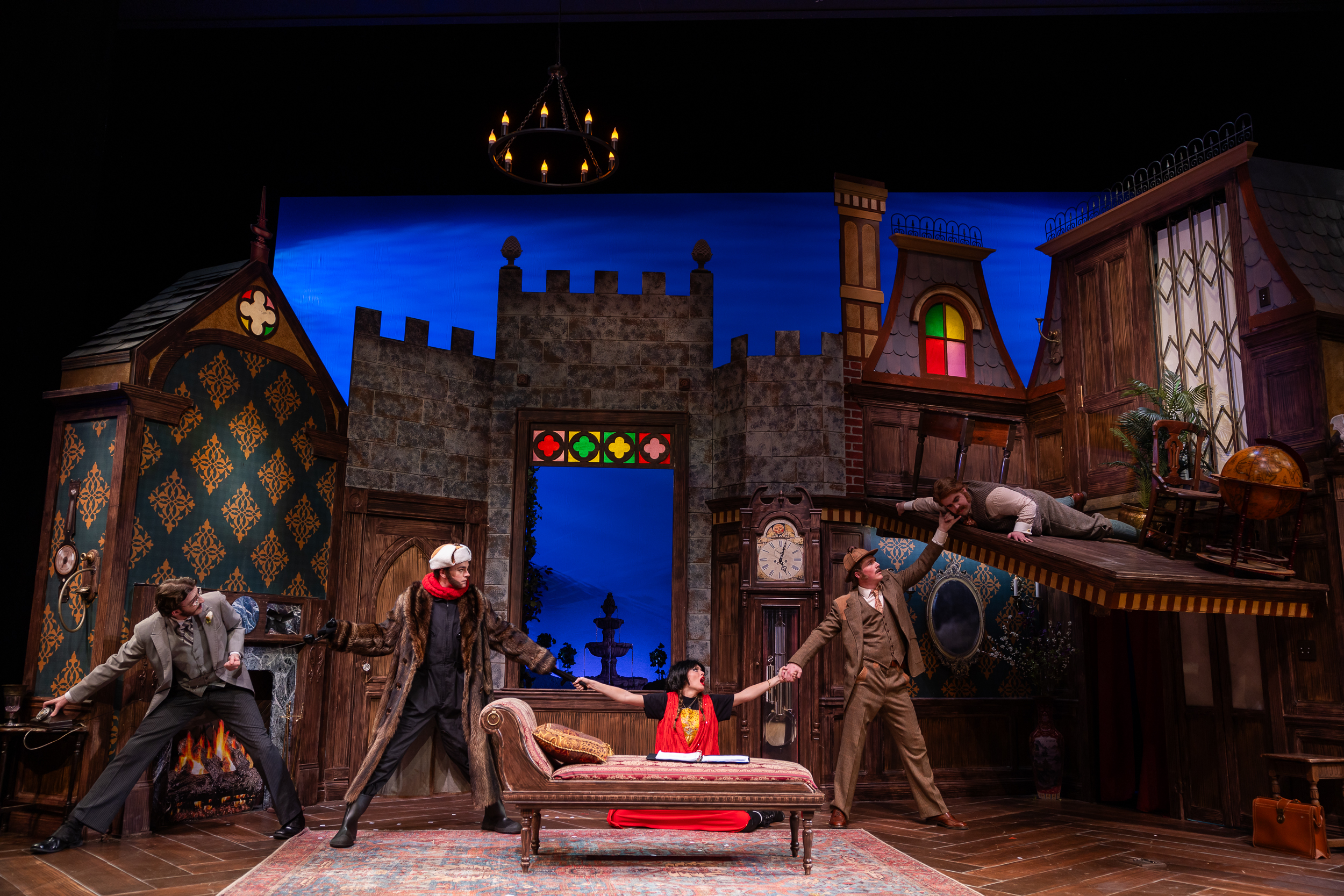Theater, Dance & Film New Home

Theatre, Dance & Film at Providence College
The primary goal of the Department of Theatre, Dance, and Film at Providence College is the development of theatre artists. The department provides knowledge of and experience in the discipline of theatre, offering the foundation necessary for graduate study and continued professional development. In keeping with the liberal arts foundation, the department is committed to providing its students with a thorough background in theatre history, theory, criticism, and literature. Students receive a well-rounded education, including performance opportunities, backstage work, and in-depth history and analysis in a department where the sense of community is palpable.
DEGREE PROGRAMS
Bachelor of Arts in Theater
For the theatre major, the core of the developmental process is a production-centered experience combined with an interdisciplinary classroom experience that forms the basis of a liberal arts education.
Musical Theater Concentration
The musical theatre concentration aims to develop the student’s talent and ability with the goal of helping the students discover their own unique abilities in musical theatre. A successful professional in musical theatre must possess skills in acting, voice, music, and dance, and be able to integrate these skills with ease, expressiveness, and versatility. To concentrate in musical theatre, students must elect either a music or theatre major.
Minors
Dance: A minor in dance is designed to give students a foundation in dance technique, composition, history, and criticism. Opportunities for advanced study off-campus are available during the junior and senior years. Course work in dance is complemented by the Providence College Dance Company, which gives advanced students the opportunity to choreograph, perform, and study with faculty and visiting artists and offers regular dance performances.
Film: Film/video minors will become familiar with the basic elements of film/video appreciation and production. They will be equipped to shape their own creative impulses and to respond critically to the vast amount of work generated in this field. Students in the program will study film history, theory, criticism, and filmmaking, through academic and studio courses.
Theatre: The minor in theatre, like the major, emphasizes that an artist’s insight is increased by an awareness of and sensitivity to the individual disciplines that collectively constitute theatre art and those disciplines among the liberal arts that relate to it.
BEYOND THE CLASSROOM

Perform in main-stage or student-directed shows

Join PC Dance Company or one of PC’s many dance clubs

Travel to Los Angeles for the PC in Hollywood program
FACULTY
From theatre design, acting, dance, and public speaking to the history of fashion and costume, script analysis, women in dance and sport, and lyric diction, our faculty members are experts in many aspects of the performing arts.
IN THE NEWS
AFTER PC
84%
of 2020-2024 fine and performing arts graduates are employed and/or attending graduate school
55%
are employed only
26%
are attending school only
3%
are employed and attending school
Due to rounding, some totals may not correspond with the sum of the separate figures.
Selected Places of Employment/Service
Art League Rhode Island
Epic
Executive Search Partners Inc.
Fred Astaire Dance Studio
Institute of Contemporary Art Boston
Massachusetts General Hospital
Millenium Strategies
Pierre Frey
Rugg Road Paper Co.
Walt Disney World
… and elementary/secondary schools throughout the U.S.
Selected Graduate Schools
California Institute of Technology
Delta State University
Florida Gulf Coast University
New England College of Optometry
NYU Steinhardt
Penn State University
Roger Williams University
University College Dublin
University of Leeds
Vanderbilt Law School







